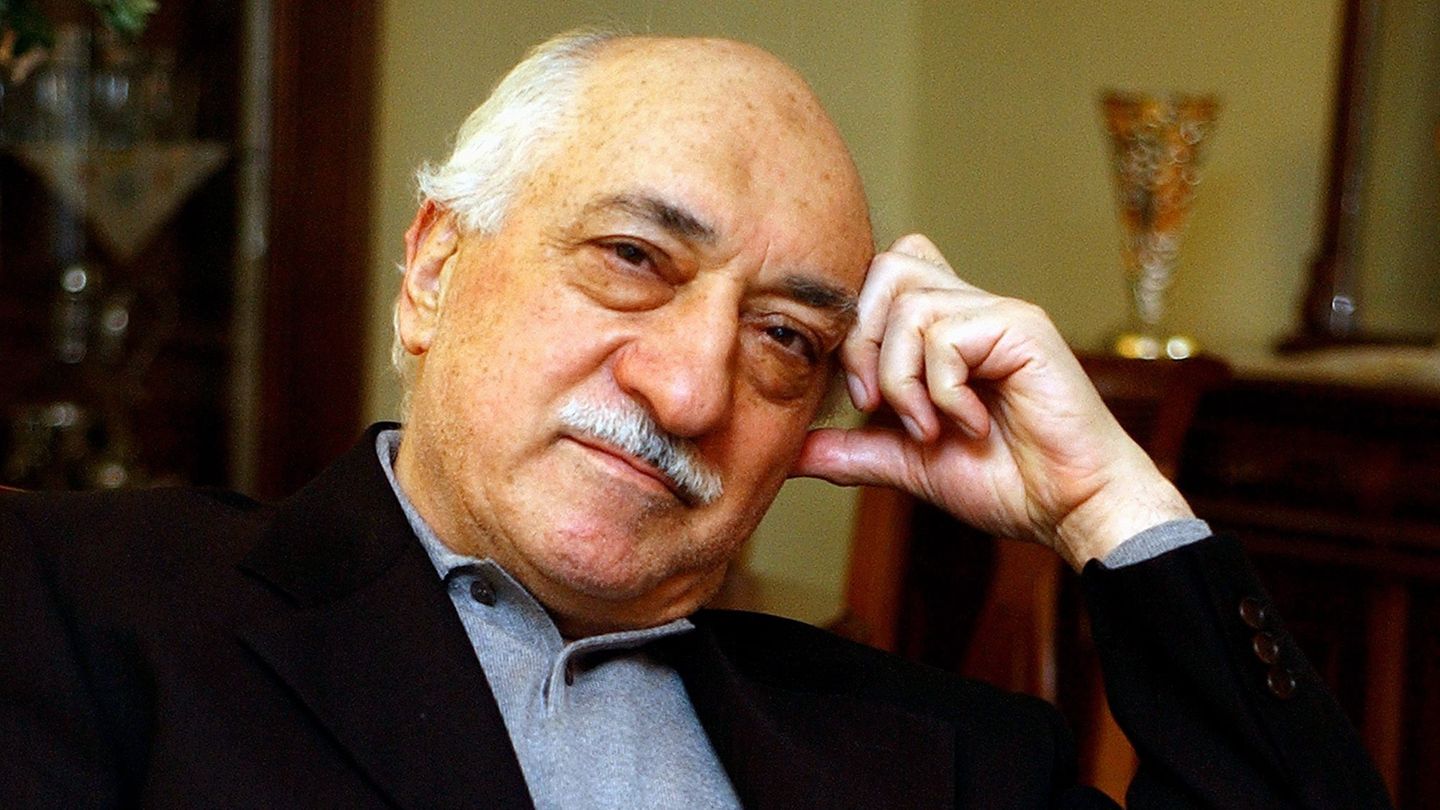Fethullah Gülen saw himself as a scholar and thinker. He was considered a danger to the Turkish government. Gülen and Erdoğan were close friends for a long time.
Fethullah Gülen died in exile in America at the age of 83. Since 1999 he has lived in the small town of Saylorsburg in the US state of Pennsylvania. There he stayed at the Chestnut Retreat Center, formerly known as the Golden Generation Worship and Retreat Center. The “” wrote in 2016 after an interview with Gülen that he was already in poor health and rarely left the spiritual center. But who was the man who had not set foot in his Turkish homeland for around 25 years and yet had such great influence?
Gülen was born in 1941, the son of an imam. After elementary school, he moved to a seminary and received a license to work as a state preacher in 1959. Seven years later, he was appointed to a post in Izmir, Türkiye’s third largest city.
In the following years, Gülen opened the so-called “light houses”. These are shared apartments that offer young students shelter and have been particularly popular with conservative Muslims from the start. This part of the Gülen network has always been viewed with suspicion. The “” wrote, for example: “Once you’re in, you experience recognition – and can hardly find your way out again.” Gülen supporters, such as , see it differently. But the movement never really got rid of the accusation of being a cult.
Fethullah Gülen’s movement flourished in the 1980s
The network spread quickly. As early as 1981, Gülen stopped serving as a preacher in the civil service and devoted himself entirely to his movement. In the years that followed, he worked closely with the Turkish state government and reached an increasingly larger audience. In addition to the “light houses,” there were now also schools, universities, media companies and numerous other companies. As a result, the movement’s influence on Turkey grew over time, as more and more Gülen supporters held high positions in the country.
The proximity to the government ended for the time being in 1996 when the Islamist party Necmettin Erbakan came to power, whose theses of an Islamic state Gülen stayed away from. Necmettin Erbakan is considered Recep Tayyip Erdoğan’s political foster father.
In 1999, an edited audio recording of Gülen was made public, in which he called on his followers to patiently take control of the state. Shortly before the broadcast on the ATV television channel, Gülen traveled to the USA for alleged health reasons. There are still doubts about the authenticity of the recording.
After the publication, proceedings were initiated in his home country, which were only suspended in 2003. Gülen even secured his acquittal in 2006, but never returned to Turkey.
Nevertheless, Gülen had the greatest influence from a distance. This was also due to his friendship with Erdoğan, whose AKP party had now come to power. The “” writes that “the two men worked hand in hand for a long time.” Erdoğan received political support from the movement, Gülen and his projects were promoted in a variety of ways and supported in their cause. The close cooperation was based on the Turkish military’s common enemy image. As a result of his ouster, more and more people close to Gülen came to influential positions.
Too much power for Recep Tayyip Erdoğan?
Throughout his life, Gülen denied direct involvement in the political entanglements, but also the existence of a centrally controlled Gülen movement. For him, his followers were organized in a kind of loose network. Of course, critics see it differently.
The big break between Gülen and Erdoğan followed in 2013, although in the previous years there had been repeated problems between Gülen supporters and the AKP. Differences also increased between the two men on important political issues, such as peace processes with the Kurds and dealings with Iran and Israel.
When Erdoğan then closed Gülen’s cram schools due to the arrest of the secret service chief Hakan Fidan by Gülen’s police cadres, the situation increasingly escalated. In the wake of the corruption scandal in Turkey, Erdoğan, whose party was under investigation, accused Gülen of attempting to overthrow the government and forming a “deep state.” He then had Gülen supporters removed from state institutions – probably out of fear that the power of Gülen, who was no longer loyal to the line, was too great.
In 2016 there was an attempted coup in Turkey. Erdoğan also blamed this on Gülen, even though he publicly criticized the coup. Rather, Gülen suspected that the president himself had orchestrated it. He took revenge: Afterwards, at least 77,000 people were arrested and 150,000 civil servants were removed from office.
The fronts were hardened until the end, although the background to the attempted coup was never fully clarified. The Turkish government demanded Gülen’s extradition for a long time, but no trial ever took place. According to reports, Turkey even offered a confidant of former President Donald Trump $15 million for Gülen’s kidnapping, so great was the fear of the voluntary exile’s power.
After Gülen’s death, former intelligence chief Hakan Fidan, among others, spoke out. Meanwhile Türkiye’s foreign minister, he said: “The leader of this dark organization has died.”
Source: Stern
I have been working in the news industry for over 6 years, first as a reporter and now as an editor. I have covered politics extensively, and my work has appeared in major newspapers and online news outlets around the world. In addition to my writing, I also contribute regularly to 24 Hours World.




